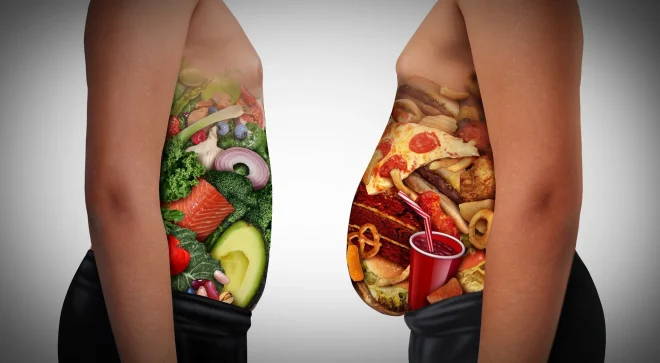
How Processed Foods Impact Gut Health
Your Microbiome – a collection of trillions of bacteria and other microorganisms in your digestive system plays a critical role in your general health.
Relying too much on processed foods can risk disrupting this delicate ecosystem.
Let’s take a closer look at how processed foods affect your gut and what you can do to keep it healthy.
What are processed foods?
Processed foods are foods that have changed from their natural state, such as canned food, freezing, and the addition of preservatives.
Minimal processed foods are foods that have experienced minimal changes in their natural state and are still packed with nutrients.
These include pre-washed spinach, frozen vegetables, roasted nuts and other objects. They maintain their original nutritional value, while simultaneously providing convenience and making them a solid choice for a healthy diet. Meanwhile, highly processed foods often contain sugar, unhealthy fats, artificial flavors and preservatives.
This includes sugar-containing grains, soda, microwave meals, and even foods sold as “healthy and flavorful yogurt, protein bars, and diet snacks.”
They may seem nutritious at first glance, but many are full of hidden sugars, artificial sweeteners and indescribable additives.
These foods are far from everything you can find in nature and can ruin your gut health.

Gut microbiome: A brief overview
How processed foods affect gut health, good bacteria compared to bad bacteria
In gut microbiomes, there are trillions of microorganisms in your home, including good and bad bacteria.
The term “bacteria” often has a negative connotation, but good intestinal bacteria for digestion, immunity, and even mental health are essential. However, this balance is easily broken. Processed foods can interfere with harmony and allow harmful bacteria to take on. This imbalance can lead to increased digestive problems, weak immunity, and increased desire for unhealthy foods.
Supporting the microbiome with the right nutrients is key to keeping shape.
How Processed Foods Affect the Gut
1. Nutrient deficiency
Processed foods may contain fiber, but are often removed by essential vitamins, minerals and healthy fats.
Nutrients such as vitamin B, omega-3 fatty acids, and antioxidants are important for maintaining gut health.
Without her, your microorganisms will not receive the diverse fuels they need to thrive, making them vulnerable to imbalances.
2. High sugars and additives
Processed foods are often packed with additional sugar and artificial ingredients. These can supply harmful bacteria to the intestines, increase and exceed good bacteria.
Conservatives and emulsifiers can further disrupt the intestinal mucosa, leading to inflammation and indigestion.
3. Refined carbohydrates
Refined carbohydrates such as white bread and sugar-containing snacks quickly disintegrate into sugar, finding blood sugar levels and nourishing harmful bacteria.
This creates imbalances in the microbiota. This contributes to problems such as flatulence, inflammation and irregular digestion.
4. Disorders of microbial diversity
Processed foods reduce the diversity of the gut microbiota. Healthy guts live from diversity, but lack of additives and natural nutrients in processed foods does not support this diversity.
The result is digestive discomfort, weak immunity, and even mood disorders.
Short and long-term impacts on gut health
In the short term, unpleasant symptoms such as flatulence, gas, lead to the urgency of fear to find the bathroom.
Your body can also experience irregular digestion and fatigue, as it is difficult to cope with imbalances.
Long-term effects include an increased risk of chronic diseases such as irritable bowel syndrome (IBS), which can make daily life difficult due to persistent digestive disorders. Autoimmune diseases can also protect and protect the body.
Gut health imbalances were even associated with mental health issues, including increased fear, depression, and persistent mood swings, which emphasized connections between gut and brain.
The disturbed gut isn’t just how you feel physically. This can affect your general health.
Bottom line? These quick and convenient meals can save a few minutes now, but dominating your diet can lead to years of complaints.
Practical tips for reducing processed food intake
Your diet may seem overwhelming, but it doesn’t have to be. The goal is not perfect. It advances.

Tips to reduce intake of processed food
- Plan ahead – Take your time to plan and prepare meals and snacks each week. In this way, they are not looking for comfortable, but less healthy options when they are hungry. Step into clips of fresh products, whole grains, lean protein, and more to promote a healthy diet.
- Read labels – Carefully check the ingredient list. If you read it like a scientific experiment or have a long list of ingredients, you need to find a simpler, more natural option. Search Whole Foods with minimal finish.
- Simplify recipes – Focus on your diet just a little bit of healthy ingredients. Try roasting vegetables, grilling chicken, or destroying fast pots. Simple cooking techniques can still bring a great taste.
- Hydrate – Drink plenty of water all day to support digestion and general health. Take a refillable water bottle with you and if simple water isn’t appealing, paint it with fresh fruits and herbs.
- Stay away from sugary drinks that can derail your gut health goals.
Processed foods can be quick and easy, but they are not the advantages of a good diet. Every small change you make can lead to great rewards for your gut health and your general wells.
